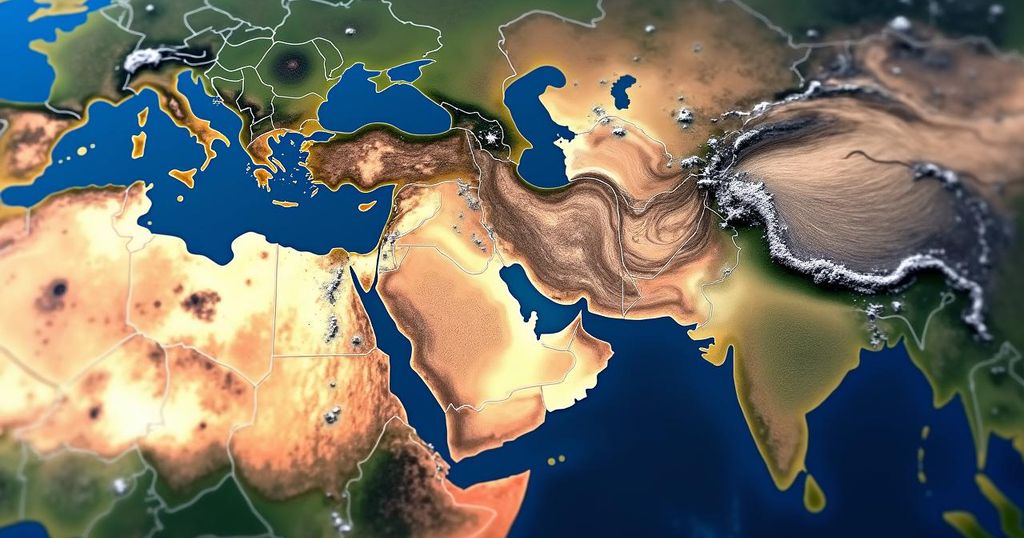Persian Gulf Nations Restrict Israel’s Airspace Amid Iranian Tensions
Saudi Arabia, the UAE, and Qatar have collectively closed their airspace to Israel to prevent its military actions against Iran, citing concerns over potential retaliation targeting their oil facilities. The decision, communicated to the U.S., highlights the rising tensions in the region following recent threats from Israel and missile strikes from Iran. Analysts warn of significant implications for regional stability and global oil markets.
Recent reports indicate that several Persian Gulf nations, including Saudi Arabia, the United Arab Emirates, and Qatar, have officially restricted Israel’s access to their airspace, particularly for potential military actions against Iran. This decision has been communicated to the United States, suggesting a unified stance among these countries to prevent any Israeli aggression from utilizing their airspace. According to Reuters, these Gulf states are increasingly worried about the possibility of Iranian retaliation, particularly targeting their vital oil infrastructure in response to any Israeli strikes. The tensions have been heightened by ongoing threats from Israel towards Iran, while Iranian officials have explicitly warned that any attack would result in a severe counteraction. Recently, Iran executed a significant missile strike on Israel, identified as Operation True Promise 2, which involved the launch of approximately 200 ballistic missiles aimed at Israeli military positions, with claims of high precision and effectiveness in hitting intended targets. Analysts are emphasizing the grave consequences of the Gulf nations’ decisions, with concerns about the potential for escalating conflicts should Israel venture to attack Iran. It has been highlighted that from the perspective of the Iranian government, the cooperation of the Persian Gulf states with Israel would constitute an act of war. Furthermore, these states are actively engaging with U.S. officials to dissuade Israel from initiating any military actions targeting Iranian oil facilities. Saudi Arabia and its oil-producing allies stand to lose significantly from increased instability in the region if a military conflict arises, particularly in light of their dependence on oil exports. Observers within these nations have noted the substantial risks involved, including the likelihood of a missile conflict and the potential for spiraling oil prices, which could exacerbate global supply issues leading up to the upcoming U.S. presidential election.
The geopolitical landscape in the Persian Gulf region remains complex and fraught with tensions, particularly concerning the interplay between Israel and Iran. Historically, Iran has viewed Israel as a significant adversary, and recent military actions and threats from both sides have further deteriorated relationships. The implications of these tensions affect not only regional stability but also global oil markets, as Persian Gulf states are critical players in oil production and exportation. The statement from Saudi Arabia, the UAE, and Qatar regarding airspace restrictions indicates a collective approach to mitigating risks associated with potential Israeli strikes, aiming to safeguard their own national security and economic interests.
In summary, the decision by Saudi Arabia, the UAE, and Qatar to deny Israel the use of their airspace for military operations against Iran reflects a strategic move to protect their regional interests and prevent escalation of conflict. The looming threat of retaliation from Iran emphasizes the delicate balance of power in the Gulf, with potential consequences for global oil supply and prices. As these countries engage with the United States to influence Israel’s military posture, the situation continues to evolve and requires close observation.
Original Source: www.presstv.ir




Post Comment